Where the worldwide
spectrum community meets
Where the worldwide
spectrum community meets
The 3rd Caribbean Spectrum Management Conference.
Across 2 days attendees had the opportunity to be involved in discussions on the key spectrum topics for the Caribbean region and beyond, through interactive sessions, networking opportunities, an exhibition area and much more.
This event is part of The Global Spectrum Series. The world’s largest collection of regional spectrum policy conferences. Click on the images on the right to find out more about the series and to view the photos from 2025.
Launched in 2024, and now in its 2nd year, The Caribbean Spectrum Management Conference has previously taken place in Montego Bay and Port of Spain.
Over 200 delegates joined 2 days of discussions in Port of Spain, Trinidad & Tobago in May 2025. Watch the highlights from the two days below
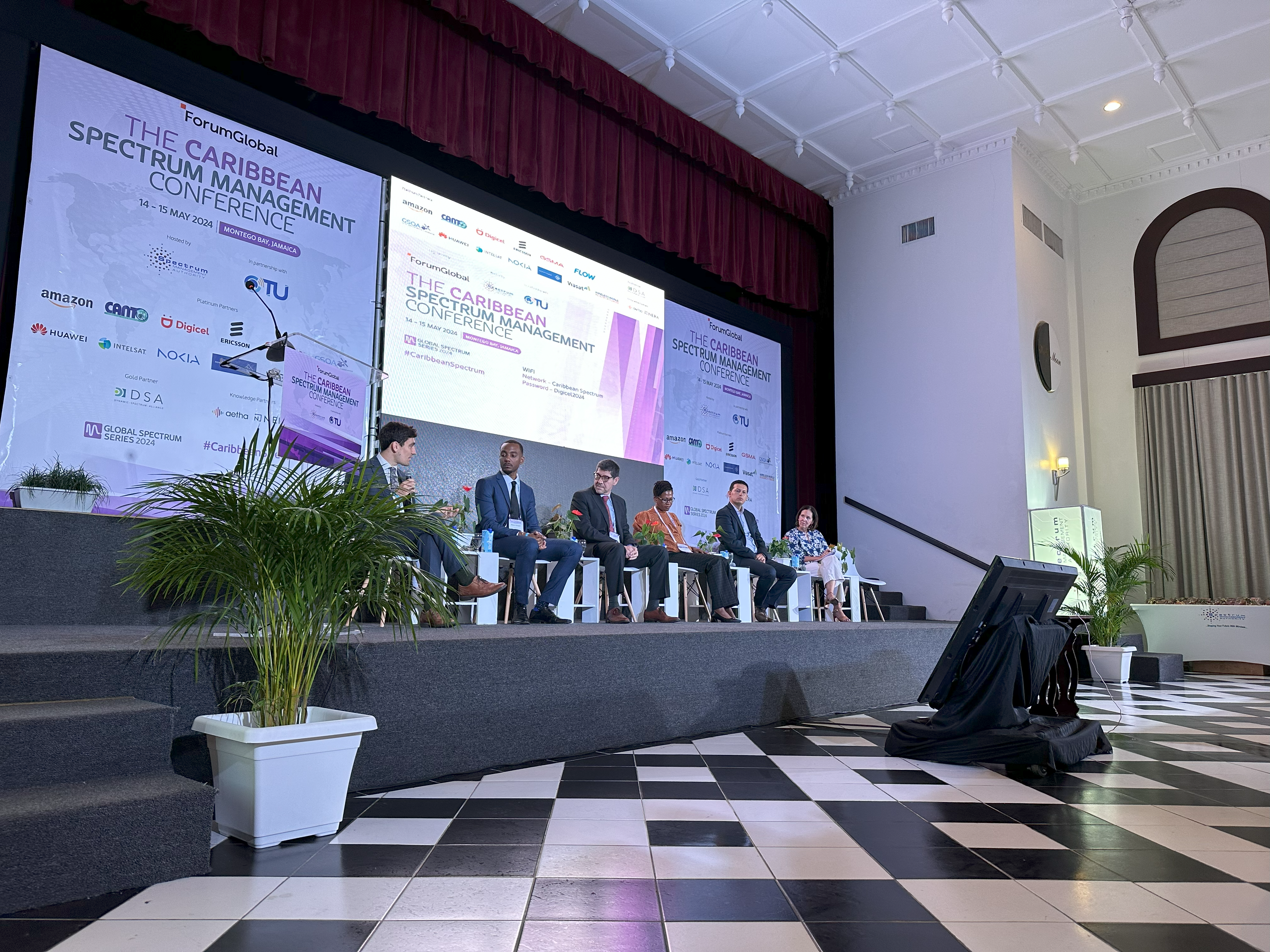

 Forum Global
Forum Global Forum Global is the international arm of Forum Europe, specialising in the organisation of policy-focused conferences on a global level.
Developed in partnership with businesses, institutions, regulators and governments throughout the world, our events provide a platform for stakeholders to engage in topical discussions, strengthen networks and establish new connections.
Since Forum Global’s inception in 2012, we have delivered over 35 major international conferences across North America, South America, Asia, the Middle East, Africa and Europe.
We are tech policy specialists. We have launched international event initiatives focused on the Internet of Things and 5G, and are the creators of the world’s largest series of global conferences on wireless spectrum management issues – the Global Spectrum Series.
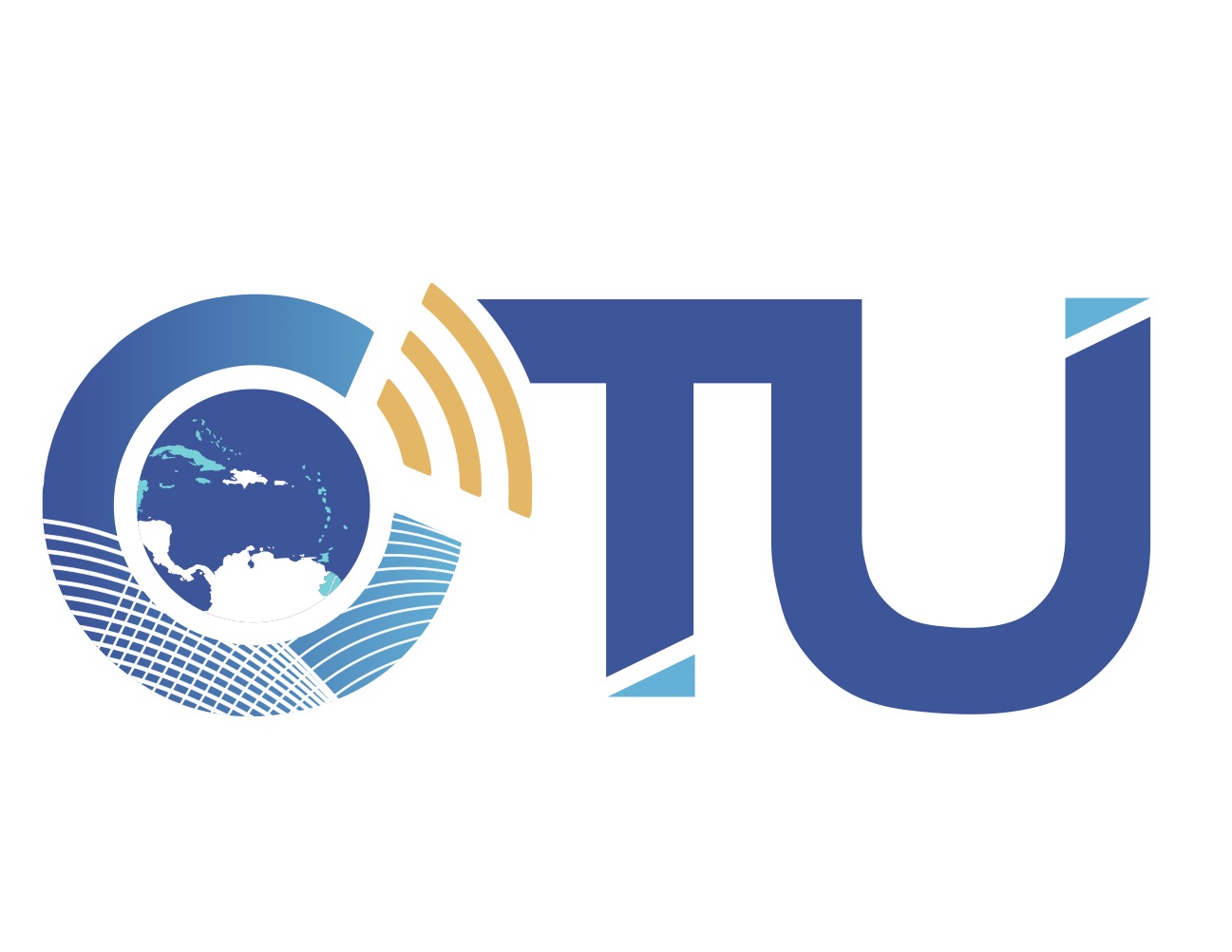
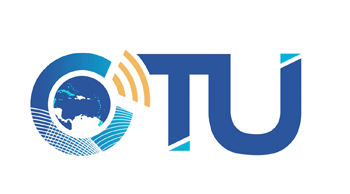 CTU
CTU The Caribbean Telecommunications Union (CTU) is an inter-governmental organisation dedicated to promoting and supporting the development of the Caribbean information and communications technologies (ICT) sector for the socio-economic development of the region.
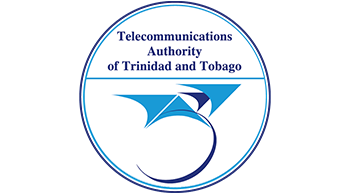
 Telecommunications Authority of Trinidad and Tobago
Telecommunications Authority of Trinidad and Tobago The Telecommunications Authority of Trinidad and Tobago (‘the Authority’) was established in July 2004 by the enactment of the Telecommunications Act 2001 Amended by 17 of 2004 as the independent regulatory body responsible for the transformation of the telecommunications sector from a virtual monopoly to a competitive environment.
The Authority is responsible not only for the liberalisation of the telecommunications sector, but also for regulating both telecommunications and broadcasting sectors, managing spectrum and number resources, establishing equipment and service quality standards, setting guidelines to prevent anti-competitive practices and encouraging investment in order to facilitate the availability of affordable telecommunications and broadcasting services to all.
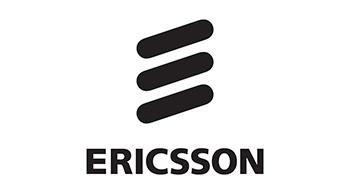
 Ericsson
Ericsson Ericsson is a world-leading provider of telecommunications equipment and related services to mobile and fixed network operators globally. Over 1,000 networks in more than 180 countries utilize our network equipment and 40 percent of all mobile calls are made through our systems. We are one of the few companies worldwide that can offer end-to-end solutions for all major mobile communication standards. Communication is changing the way we live and work. Ericsson plays a key role in this evolution, using innovation to empower people, business and society. We provide communications networks, telecom services and multimedia solutions, making it easier for people all over the globe to communicate.

 Ericsson
Ericsson GSA (the Global mobile Suppliers Association) is a not-for-profit industry organisation representing companies across the worldwide mobile ecosystem who are engaged in the supply of infrastructure, semiconductors, test equipment, devices, applications, and mobile support services.
GSA actively promote the 3GPP technology road-map – 3G; 4G; 5G – and we are a single source of information for industry reports and market intelligence. Their Members drive the GSA agenda and define the communications and development strategy for the Association.

 GSMA
GSMA The GSMA represents the interests of mobile operators worldwide, uniting nearly 800 operators with more than 250 companies in the broader mobile ecosystem, including handset and device makers, software companies, equipment providers and Internet companies, as well as organisations in adjacent industry sectors. The GSMA also produces industry-leading events such as Mobile World Congress, Mobile World Congress Shanghai and the Mobile 360 Series conferences.

 Echostar
Echostar Specure, an Austrian firm, specializes in developing software for spectrum auctions.
Their EAS auction platform has been fundamental to numerous successful spectrum auctions across Europe and Africa.

 Aetha Consulting
Aetha Consulting Aetha Consulting provides strategic advice to the telecommunications industry and specialises in undertaking rigorous data-driven quantitative assessments to help businesses, regulators and policy makers make major strategic and regulatory decisions. We work with our clients to develop creative and sustainable solutions to the challenges facing them in a constantly changing environment. Aetha helps operators and regulators to analyse the opportunities and threats arising out of changes (whether real or proposed) in their radio spectrum holdings. Throughout the recent unprecedented growth of wireless services, Aetha’s staff have been at the forefront of spectrum policy. Our consultants have assisted regulators to award spectrum and develop regulatory frameworks, including supporting the European Commission to tackle issues such as spectrum trading and the digital dividend. We also support operators to understand their spectrum needs, value spectrum and bid in auctions. Each year we support around 10 bidders in spectrum auctions – a total of over 120 award processes between mid-2011 and 2023 across all regions of the world. Our technical knowledge, combined with our rigorous valuation modelling approach, ensures that our clients are comprehensively prepared for auctions.

 NERA
NERA NERA is a global firm of experts dedicated to applying economic, finance, and quantitative principles to complex business and legal challenges. For half a century, NERA’s economists have been creating strategies, studies, reports, expert testimony, and policy recommendations for government authorities and the world’s leading law firms and corporations. We bring academic rigor, objectivity, and real world industry experience to bear on issues arising from competition, regulation, public policy, strategy, finance, and litigation. NERA’s clients value our ability to apply and communicate state-of-the-art approaches clearly and convincingly, our commitment to deliver unbiased findings, and our reputation for quality and independence. Our clients rely on the integrity and skills of our unparalleled team of economists and other experts backed by the resources and reliability of one of the world’s largest economic consultancies. With its main office in New York City, NERA serves clients from more than 25 offices across North America, Europe, and Asia Pacific.

 Senator the Honourable Dominic Smith, Minister of Public Administration and Artificial Intelligence, Government of Trinidad & Tobago
Senator the Honourable Dominic Smith, Minister of Public Administration and Artificial Intelligence, Government of Trinidad & Tobago More information will be available shortly.
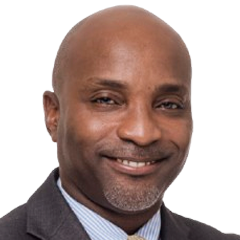
 Rodney Taylor, Secretary General, Caribbean Telecommunications Union (CTU)
Rodney Taylor, Secretary General, Caribbean Telecommunications Union (CTU) More information available shortly.

 Kurleigh Prescod, Chief Executive Officer, Telecommunications Authority of Trinidad and Tobago (TATT)
Kurleigh Prescod, Chief Executive Officer, Telecommunications Authority of Trinidad and Tobago (TATT) Kurleigh has held various senior management positions for both public and private sector organizations in the telecommunications sector in Trinidad and Tobago over the past several years in various disciplines including engineering, regulatory affairs, sales, carrier services and business development. Kurleigh has also served as a postgraduate Course Director at the University of the West Indies (UWI).
Kurleigh intends to play an influential role in transforming the telecommunications industry in any market he is situated, through the deployment of innovative technological solutions and mandating excellence in customer service.
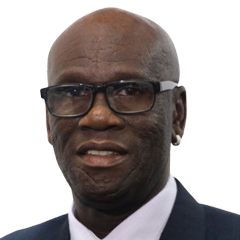
 Guy Malone, CEO, Telecommunications Regulatory Commission, British Virgin Islands
Guy Malone, CEO, Telecommunications Regulatory Commission, British Virgin Islands More information available shortly.

 Annie Baldeo, Executive Officer, Policy Planning and Economics, TATT
Annie Baldeo, Executive Officer, Policy Planning and Economics, TATT More information will be available shortly.

 Kwan Wilson, Director of Spectrum Engineering, SMA Jamaica
Kwan Wilson, Director of Spectrum Engineering, SMA Jamaica More information will be available shortly.
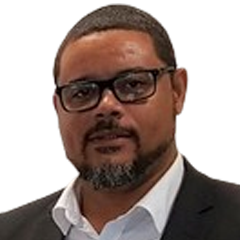
 Sidney de Weever, Head of Technical Division, Bureau of Telecommunications and Post, St. Maarten
Sidney de Weever, Head of Technical Division, Bureau of Telecommunications and Post, St. Maarten More information available shortly.

 Derek Khlopin, Deputy Associate Administrator for Spectrum Planning and Policy, NTIA
Derek Khlopin, Deputy Associate Administrator for Spectrum Planning and Policy, NTIA More information available shortly.
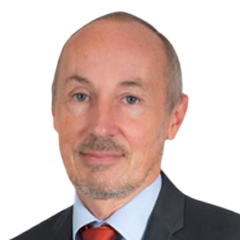
 Eric Fournier, Director for Spectrum Planning and International Affairs, ANFR
Eric Fournier, Director for Spectrum Planning and International Affairs, ANFR Eric Fournier is currently Director for Spectrum Planning and International Affairs in the Agence Nationale des Fréquences (ANFR), the French public agency in charge of spectrum management (www.anfr.fr).
In this capacity, he is responsible for preparing the revisions of the French national table of spectrum allocation and for coordinating French positions in international meetings and conferences on spectrum within ITU, CEPT and EU. He was deputy head of the French delegation for RRC-06, WRC-07, WRC-12, WRC-15, WRC-19 and WRC-23.
He was chairman of the RSPG, a high-level advisory group that assists the European Commission in the development of radio spectrum policy, for the cycle 2022-23.
He has been involved in all discussions on major evolutions of spectrum in Europe and was Chairman of the Electronic Communication Committee (CEPT/ECC) from 2013 to 2018 and of the European Conference Preparatory Group for the World Radiocommunications Conference 2012 (CPG-12).
Eric is a graduate telecom engineer from SUPELEC (France).

 Alex Kuehn, Head of Section, International & National Spectrum Management, BNetzA
Alex Kuehn, Head of Section, International & National Spectrum Management, BNetzA After a state exam in law at the University of Osnabrück, Mr Kühn has been working since 1998 in the area of legal internship (e.g. at Regional Court) of the Federal Network Agency Germany; changing to National and International Spectrum Regulation on different levels in 2005. Nowadays, he is the Deputy Head of Section for International Affairs and Utilization Concepts. His responsibilities cover strategic frequency utilization concepts and the transposition of those to the international level of CEPT, EU and ITU. Doing this and having been active in the preparation of three WRC’s, on national and on CEPT CPG level, Mr Kühn participated in a number of international Groups, also as Head of the German Delegation. He has also chaired several groups and subgroups in the ITU and CEPT. Since 2005, he has been responsible for the German preparation of the WRC’s and served as CEPT CPG Vice Chairman from 2010 to 2013. Mr Kühn was appointed Chairman of CPG in June 2013.
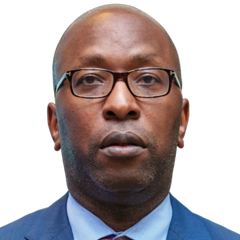
 Dickson Osuala, Group Head of Regulatory Affairs, Digicel Group, on behalf of CANTO
Dickson Osuala, Group Head of Regulatory Affairs, Digicel Group, on behalf of CANTO Dr. Dickson C.T. Osuala is an accomplished economist and project management leader with significant experience in competition economics and regulation, tariff/price regulation, econometric modelling and telecommunications regulation and policy. He currently holds the portfolio of Group Head of Regulatory Affairs at Digicel Group. Dr. Osuala previously held the portfolio of Manager Market Economics at the Telecommunications Authority of Trinidad and Tobago (TATT).
Dr. Osuala has spoken and made presentations at numerous international and regional telecommunication meetings and workshops (i.e., International Telecommunications Union (ITU), Caribbean Telecommunications Union (CTU), and Inter-American Telecommunication Commission (CITEL), International Institute of Communication (IIC) to mention a few. Dr. Osuala received his M.Sc. in Economics from the University of the West Indies (UWI) St. Augustine Campus as well as his Ph.D. in Economic Development and Policy from the Sir Arthur Lewis Institute of Social and Economic Studies (SALISES) of the University of the West Indies (UWI) St. Augustine Campus.
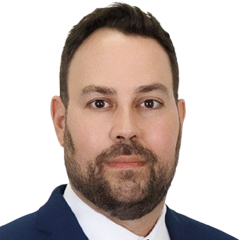
 Kent Western, CEO, Telecommunications Services of Trinidad and Tobago
Kent Western, CEO, Telecommunications Services of Trinidad and Tobago More information will be available shortly.

 Simone Martin-Šulgan, Vice President and General Manager, Trinidad & Tobago - Cable & Wireless Communications
Simone Martin-Šulgan, Vice President and General Manager, Trinidad & Tobago - Cable & Wireless Communications More information will be available shortly.

 Ryan Johnson, Senior Director, Global Market Access & Government Affairs Lead, Latin America, Viasat
Ryan Johnson, Senior Director, Global Market Access & Government Affairs Lead, Latin America, Viasat Ryan Johnson is the Senior Director for global government affairs at the global satellite broadband firm, Viasat. He holds a masters degree in Internet Governance from the University of Malta, and a bachelors in Political Science from Indiana Wesleyan University. Prior to joining Viasat, he worked for over 10 years in the global technology policy space, with a focus on cybersecurity, development, and connecting the unconnected. His work has been published in academic journals, magazines, and UN publications.

 Zachary Blackburn, Americas Licensing and Regulatory Lead, Project Kuiper, Amazon
Zachary Blackburn, Americas Licensing and Regulatory Lead, Project Kuiper, Amazon More information will be available shortly.
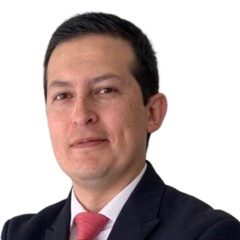
 Jose Arias, Head of Global Policy and Regulatory Affairs, Nokia
Jose Arias, Head of Global Policy and Regulatory Affairs, Nokia José Arias is an advocate, strategist, and advisor to the Nokia Leadership Team in public policy, technology regulation, connectivity, and digitalization to enable respective portfolio and business strategies.
José previously was Head of Government Affairs for LATAM North & the Caribbean in Nokia, former General Director of Spectrum Planning, and Director of Wireless Technologies at the Mexican regulator, where he held several leadership roles in international organizations, including Chair of the Terrestrial Services Committee at ITU, and worked in Alcatel-Lucent in the fields of business development, corporate strategy, pre-sales, and wireless network design.
José has a Master’s Degree in Business Administration, a Master’s Degree in Regulation and Economic Competition, and an Engineering in Communications and Electronics.
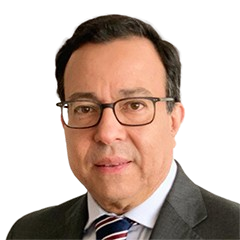
 Jose Ayala, Director Spectrum Regulations - Americas, Ericsson
Jose Ayala, Director Spectrum Regulations - Americas, Ericsson Mr. Ayala currently chairs the Spectrum Group of the GSA Association for the CITEL Region.
In addition, Mr. Ayala serves as Director of Government and Industry Relations for Latin America at Ericsson and is responsible for leading the strategy regarding telecom policies that favor the mass adoption of broadband services in the region. He joined Ericsson in the USA in 2000 and moved to Latin American operations in 2002. In his position, Mr. Ayala has supported several governments, developing successful strategies in areas of spectrum management, national ICT plans, and mobile broadband strategies.
Prior to joining Ericsson, Mr. Ayala worked with leading telecom operators based in Central America, the United States, and Spain. He is a telecommunications engineer with over twenty years of experience in the industry. Mr. Ayala holds a Master Degree in Electrical Engineering from the Georgia Institute of Technology University under a Fullbright Scholarship. In addition, he received a fellowship from Hispano-American Telecom Association ASIET in Madrid, Spain.

 Hazem Moakkit, Vice President, Corporate & Spectrum Strategy, Intelsat
Hazem Moakkit, Vice President, Corporate & Spectrum Strategy, Intelsat More information will be available shortly.

 Ferran Font, Spectrum Policy Analyst, GSMA
Ferran Font, Spectrum Policy Analyst, GSMA More information will be available shortly.
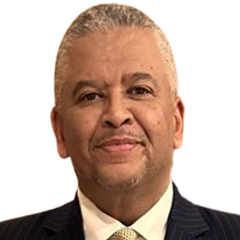
 Brian Carter, Founder & Managing Director, Westbury Global
Brian Carter, Founder & Managing Director, Westbury Global More information will be available shortly.
More information will be available shortly.
Nigel Cassimire is a telecommunications engineer with over thirty years of experience in the technical, operational and executive management of telecommunications systems and services. He has intimate understanding of a broad range of information and communications technologies and services, with practical experience in network and service planning, operations management and domestic and international telecommunications policy development.
Mr. Cassimire has functioned as a Consulting Telecommunications Specialist since July 2005 and has worked extensively with the Caribbean Telecommunications Union (CTU) Secretariat in Port of Spain developing and promoting harmonised Caribbean positions in the areas of spectrum management, Internet governance and ICT policy. He has also successfully conducted consultancies for several of the member governments of the CTU.
Mr. Cassimire has Bachelor’s and Master’s degrees in Electrical Engineering as well as a Diploma in Management Studies from The University of the West Indies, St. Augustine. He is a fellow of the Telecommunications Engineering and Management Institute of Canada (TEMIC) and an alumnus of the Advanced Management Programme at INSEAD, Fountainbleau, France.
With its diverse set of nations and territories and its specific geography, the Caribbean region faces unique challenges in harmonising spectrum management policies to avoid cross-border interference, ensure efficiency in resource use and foster a more integrated telecommunications market. This session will assess the progress made in regional spectrum coordination, the challenges faced in achieving harmonisation, and the way forward. We will discuss ongoing work, including updates from the Caribbean Telecommunications Union (CTU) Spectrum Management Taskforce on progress in developing the Caribbean Spectrum Management Policy Framework, and debate whether a fully harmonised framework is feasible given the national differences across the region.
Richard Marsden specializes in market design, including auctions and trading, bidding strategy, and related competition, pricing, regulatory, and public policy issues. He applies this expertise to multiple industries, including broadcasting, energy, mobile telephony, procurement, radio spectrum, technology, and transport to help his clients create or participate in new marketplaces.
Over the last 20 years, Mr. Marsden has provided guidance to regulators, private companies, and law firms in more than 50 countries. His teams at NERA are particularly well known for their work on the design and implementation of high-value auctions and the development of effective bid strategies. To support this work, the team has developed a suite of software tools for running, simulating, and analyzing auctions.
In the communications sector, Mr. Marsden’s experience includes auction design and implementation, bid strategy advisory work, expert witness reports, and litigation support concerning spectrum allocation, spectrum pricing, spectrum valuation, and mobile market competition. He has advised clients on spectrum auction design and implementation for 4G and 5G mobile spectrum in Belgium, Mexico, Saudi Arabia, Singapore, and South Africa. Mr. Marsden has also provided bid strategy advice to mobile operators participating in auctions for 4G and 5G mobile frequencies in more than 30 countries, including spectrum auctions in Australia, Brazil, Canada, Germany, Spain, the UK, and the US. This work often includes developing or critiquing valuation models. He has also advised on auctions procuring subsidies for broadband rollout.
In the energy sector, Mr. Marsden has designed auctions for electricity interconnection capacity, offshore wind generation sites, and gas pipeline capacity. Additionally, he has advised energy companies participating in capacity markets and offshore wind auctions.
In the technology sector, Mr. Marsden has advised companies on the design of auctions for procurement processes, pricing of used products for resale, and regulatory processes for inducing competition in vertically integrated markets.
Mr. Marsden frequently presents and publishes on topics related to market design, auctions, the communications industry, and spectrum management. He has completed major studies for the GSMA on spectrum pricing and for the European Commission on the transfer of digital dividend spectrum from broadcast to mobile use and on spectrum trading and spectrum liberalization. He contributed a chapter to the Handbook of Spectrum Auction Design on combinatorial auctions and is the co-author of Broadband in Europe: How Brussels Can Wire the Information Society.
Nigel Cassimire is a telecommunications engineer with over thirty years of experience in the technical, operational and executive management of telecommunications systems and services. He has intimate understanding of a broad range of information and communications technologies and services, with practical experience in network and service planning, operations management and domestic and international telecommunications policy development.
Mr. Cassimire has functioned as a Consulting Telecommunications Specialist since July 2005 and has worked extensively with the Caribbean Telecommunications Union (CTU) Secretariat in Port of Spain developing and promoting harmonised Caribbean positions in the areas of spectrum management, Internet governance and ICT policy. He has also successfully conducted consultancies for several of the member governments of the CTU.
Mr. Cassimire has Bachelor’s and Master’s degrees in Electrical Engineering as well as a Diploma in Management Studies from The University of the West Indies, St. Augustine. He is a fellow of the Telecommunications Engineering and Management Institute of Canada (TEMIC) and an alumnus of the Advanced Management Programme at INSEAD, Fountainbleau, France.
More information will be available shortly.
Expert in cross-border agreement negotiation for mobile in the Agence Nationale des Fréquences (ANFR)
Keite Dyvrande is currently working in the Cross-Border Agreement Negotiation Department in Agence Nationale des Fréquences (ANFR) dealing with different topics, mobile, VHF and UHF.
She has worked on synchronisation framework in the C-band at CEPT level (ECC PT1 group).
She is currently involved in the different topics related to cross-border coordination at ECC PT1.
She is a graduate telecom engineer from Sup’Galilée (France).
Dr. Dickson C.T. Osuala is an accomplished economist and project management leader with significant experience in competition economics and regulation, tariff/price regulation, econometric modelling and telecommunications regulation and policy. He currently holds the portfolio of Group Head of Regulatory Affairs at Digicel Group. Dr. Osuala previously held the portfolio of Manager Market Economics at the Telecommunications Authority of Trinidad and Tobago (TATT).
Dr. Osuala has spoken and made presentations at numerous international and regional telecommunication meetings and workshops (i.e., International Telecommunications Union (ITU), Caribbean Telecommunications Union (CTU), and Inter-American Telecommunication Commission (CITEL), International Institute of Communication (IIC) to mention a few. Dr. Osuala received his M.Sc. in Economics from the University of the West Indies (UWI) St. Augustine Campus as well as his Ph.D. in Economic Development and Policy from the Sir Arthur Lewis Institute of Social and Economic Studies (SALISES) of the University of the West Indies (UWI) St. Augustine Campus.
As the Caribbean continues its journey toward 5G deployment, the region faces a unique set of challenges and opportunities. While some countries are making significant progress in rolling out 5G networks, others are still navigating the complexities of spectrum allocation, infrastructure readiness, and investment hurdles. Regulators must find a balance between planning for 5G adoption while still ensuring the optimization of existing 4G networks and other critical connectivity priorities. Beyond securing the necessary spectrum, factors such as financial investment, infrastructure development, site sharing, and fibre integration all play a key role in enabling a successful transition to next-generation connectivity. This discussion will explore the roadmap for 5G in the Caribbean, the business case for investment, and the lessons that can be drawn from global experiences to help shape an effective and sustainable strategy for the region.
Hector Lopez is an expert on market design, including auctions, procurement, and marketplaces. He has more than 10 years of experience in the strategy, design, implementation, regulation, pricing, and benchmarking of competitive processes. Dr. Lopez has led bidding strategy teams for companies participating in high-stake competitive processes and design and implementation teams for governments, regulators, and companies buying or selling high-value items.
Dr. Lopez has significant experience in the telecommunications sector in the Americas. He has worked on spectrum and infrastructure deployment (fiber and wireless) competitive processes in the US, Canada, Mexico, Brazil, Colombia, Chile, Peru, Ecuador, Uruguay, Costa Rica, and other jurisdictions in the Americas.
In the US, Dr. Lopez provided strategy advice for a participant in the incentive auction. His client realized the highest return of all private equity participants. In Brazil, he advised an MNO on the worldwide 5G spectrum and obligations auction. His client acquired spectrum at half the price of his competitors and obtained fiber deployment obligations, accounting for half the cost of his competitors.
Dr. Lopez has experience with the most common auction formats, including combinatorial clock auctions (CCAs), simultaneous multiple-round auctions (SMRAs), clock auctions, and sealed-bid auctions. He provides on-site support and software tools using the latest research in game theory, optimization, simulations, econometrics, and experiments.
Dr. Lopez has authored numerous articles and white papers on market design, telecommunication policy, open access, drones, electric vehicles, network sharing, and spectrum policy. He has presented his research at academic and industry conferences. Dr. Lopez has taught undergraduate and Ph.D. courses in microeconomic theory.
Keith Dixon brings over two decades of telecommunications and regulatory experience, encompassing engineering, spectrum management, and both public and private sectors. His career reflects a progression of hands-on technical expertise and a comprehensive grasp of policy, compliance, and operational planning.
Keith is dedicated to ongoing learning, collaboration, and the creation of effective regulatory frameworks that benefit the public and industry stakeholders alike. He values thoughtful leadership, practical solutions, and a service-oriented approach.
More information available shortly.
Mr. Ayala currently chairs the Spectrum Group of the GSA Association for the CITEL Region.
In addition, Mr. Ayala serves as Director of Government and Industry Relations for Latin America at Ericsson and is responsible for leading the strategy regarding telecom policies that favor the mass adoption of broadband services in the region. He joined Ericsson in the USA in 2000 and moved to Latin American operations in 2002. In his position, Mr. Ayala has supported several governments, developing successful strategies in areas of spectrum management, national ICT plans, and mobile broadband strategies.
Prior to joining Ericsson, Mr. Ayala worked with leading telecom operators based in Central America, the United States, and Spain. He is a telecommunications engineer with over twenty years of experience in the industry. Mr. Ayala holds a Master Degree in Electrical Engineering from the Georgia Institute of Technology University under a Fullbright Scholarship. In addition, he received a fellowship from Hispano-American Telecom Association ASIET in Madrid, Spain.
Keith Dixon brings over two decades of telecommunications and regulatory experience, encompassing engineering, spectrum management, and both public and private sectors. His career reflects a progression of hands-on technical expertise and a comprehensive grasp of policy, compliance, and operational planning.
Keith is dedicated to ongoing learning, collaboration, and the creation of effective regulatory frameworks that benefit the public and industry stakeholders alike. He values thoughtful leadership, practical solutions, and a service-oriented approach.
The transition from analogue to digital television broadcasting, known as the Digital Switchover (DSO), is still ongoing across the region. And whilst some progress is being seen – countries such as Jamaica, and Trinidad and Tobago have made significant strides in transitioning to digital terrestrial television (DTT) – many others are still in the planning phases, facing technical, regulatory, and financial hurdles. This session will examine the progress and challenges of DSO in the Caribbean, exploring strategies to accelerate and coordinate digital transitions while ensuring a smooth and inclusive process for all stakeholders. It will also consider more broadly the future shape of the UHF spectrum across the region, exploring how it can be best employed to meet evolving needs of current users such as broadcast and Programme-Making and Special Events (PMSE), whilst also accommodating a growing demand from IMT.
Kurleigh has held various senior management positions for both public and private sector organizations in the telecommunications sector in Trinidad and Tobago over the past several years in various disciplines including engineering, regulatory affairs, sales, carrier services and business development. Kurleigh has also served as a postgraduate Course Director at the University of the West Indies (UWI).
Kurleigh intends to play an influential role in transforming the telecommunications industry in any market he is situated, through the deployment of innovative technological solutions and mandating excellence in customer service.
Alberto Delgado, is the Director of Radioelectric Spectrum, at INDOTEL, Dominican Republic. With more than 20 years of experience in Spectrum monitoring and Management, graduated in electronics and telecommunications engineering from the Technological Institute of Santo Domingo with a master’s degree in Top Management from the same house of studies.
More information will be available shortly.
The discussion around the 6 GHz band, particularly the upper portion, is at the center of global spectrum policy debates. While some regions have moved toward allocating parts of the band for unlicensed use, others are still assessing the best approach to ensure long-term spectrum efficiency and future connectivity needs. In the Caribbean, the focus is not just on immediate allocation but on establishing a harmonised strategy for the use of the band that ensures flexibility, cross-border coordination, and alignment with global trends. This session will examine how perspectives on the future use of the band are evolving both within the Caribbean and globally. It will discuss the importance of a coordinated regional strategy and explore the most effective approach for the region to enable the long-term value of this key spectrum to be realised.
Over 25 years experience in radio spectrum management, satellite communications, digital broadcasting and telecommunications. Expert in the fields of regulatory policy and strategy, business planning and development, pricing and tariffing, network planning and procurement, monitoring and enforcement, as well as being a seasoned and popular trainer.
Broad international knowledge having worked in every continent except Antarctica.
Specialties: Spectrum pricing, auctions, regulation, management, monitoring, enforcement. Satellite communications. Digital broadcasting. Business planning and procurement. Wireless and broadcast technologies (including 5G).
After a state exam in law at the University of Osnabrück, Mr Kühn has been working since 1998 in the area of legal internship (e.g. at Regional Court) of the Federal Network Agency Germany; changing to National and International Spectrum Regulation on different levels in 2005. Nowadays, he is the Deputy Head of Section for International Affairs and Utilization Concepts. His responsibilities cover strategic frequency utilization concepts and the transposition of those to the international level of CEPT, EU and ITU. Doing this and having been active in the preparation of three WRC’s, on national and on CEPT CPG level, Mr Kühn participated in a number of international Groups, also as Head of the German Delegation. He has also chaired several groups and subgroups in the ITU and CEPT. Since 2005, he has been responsible for the German preparation of the WRC’s and served as CEPT CPG Vice Chairman from 2010 to 2013. Mr Kühn was appointed Chairman of CPG in June 2013.
José Arias is an advocate, strategist, and advisor to the Nokia Leadership Team in public policy, technology regulation, connectivity, and digitalization to enable respective portfolio and business strategies.
José previously was Head of Government Affairs for LATAM North & the Caribbean in Nokia, former General Director of Spectrum Planning, and Director of Wireless Technologies at the Mexican regulator, where he held several leadership roles in international organizations, including Chair of the Terrestrial Services Committee at ITU, and worked in Alcatel-Lucent in the fields of business development, corporate strategy, pre-sales, and wireless network design.
José has a Master’s Degree in Business Administration, a Master’s Degree in Regulation and Economic Competition, and an Engineering in Communications and Electronics.
The digital divide remains a significant challenge in the Caribbean, with many societies and individuals still lacking access to essential digital services. While some progress has been made, large portions of the population remain unconnected, particularly in more remote and economically disadvantaged areas. This session will explore the most effective technologies and solutions, comparing the role of satellite, wireless, and fibre networks in reaching underserved areas. It will also examine how affordability, policy interventions, and Universal Service Funds can be leveraged to enhance accessibility, particularly for low-income populations. By analysing successful regional initiatives and global best practices, the session will highlight actionable steps to achieve universal and affordable connectivity across the Caribbean.
More information will be available shortly.
More information will be available shortly.
More information will be available shortly.
Ryan Johnson is the Senior Director for global government affairs at the global satellite broadband firm, Viasat. He holds a masters degree in Internet Governance from the University of Malta, and a bachelors in Political Science from Indiana Wesleyan University. Prior to joining Viasat, he worked for over 10 years in the global technology policy space, with a focus on cybersecurity, development, and connecting the unconnected. His work has been published in academic journals, magazines, and UN publications.
More information will be available shortly.
Eric Fournier is currently Director for Spectrum Planning and International Affairs in the Agence Nationale des Fréquences (ANFR), the French public agency in charge of spectrum management (www.anfr.fr).
In this capacity, he is responsible for preparing the revisions of the French national table of spectrum allocation and for coordinating French positions in international meetings and conferences on spectrum within ITU, CEPT and EU. He was deputy head of the French delegation for RRC-06, WRC-07, WRC-12, WRC-15, WRC-19 and WRC-23.
He was chairman of the RSPG, a high-level advisory group that assists the European Commission in the development of radio spectrum policy, for the cycle 2022-23.
He has been involved in all discussions on major evolutions of spectrum in Europe and was Chairman of the Electronic Communication Committee (CEPT/ECC) from 2013 to 2018 and of the European Conference Preparatory Group for the World Radiocommunications Conference 2012 (CPG-12).
Eric is a graduate telecom engineer from SUPELEC (France).
As WRC-27 preparations gain momentum, the Caribbean region must take proactive steps to ensure its priorities are well represented on the global stage. While regional collaboration is already underway, questions remain about how best to coordinate efforts, amplify the Caribbean’s voice, and align with broader spectrum strategies across the Americas. This session will explore how Caribbean nations can work together to maximize their impact at WRC-27, navigate emerging spectrum trends, and ensure the best possible outcomes on key agenda items for the benefit of Caribbean stakeholders everywhere.
Over 25 years experience in radio spectrum management, satellite communications, digital broadcasting and telecommunications. Expert in the fields of regulatory policy and strategy, business planning and development, pricing and tariffing, network planning and procurement, monitoring and enforcement, as well as being a seasoned and popular trainer.
Broad international knowledge having worked in every continent except Antarctica.
Specialties: Spectrum pricing, auctions, regulation, management, monitoring, enforcement. Satellite communications. Digital broadcasting. Business planning and procurement. Wireless and broadcast technologies (including 5G).
Marc Girouard is Managing Co-Founder of Purpose Partners, a telecommunications consulting firm specializing in spectrum management and providing services to governments and corporations in the Americas, Europe and Asia.
Marc has over 30 years of experience in the field of telecommunications and began his career with Canada’s spectrum regulator, where he led a multi-disciplinary team involved in managing industry relationships, developing technical standards, regulations and policies to facilitate the introduction of new space and terrestrial wireless services.
Marc has also held various leadership positions at the international level, including serving as the Head of Canada’s delegation at CITEL and ITU meetings, including World Radiocommunications Conferences (WRCs). He was Chair of the CITEL Working Group preparing for WRC-2003 and served as chief negotiator for Canada-US cross-border frequency coordination.
Following his retirement from Government in 2017, Marc founded his first consulting firm – Alcance Consulting – providing services primarily in the Americas. More recently with Purpose Partners, he is leading the expansion of advisory services in the Caribbean. He was recently appointed as Special Advisor to the National Telecommunications Regulatory Commission of the Commonwealth of Dominica.
Marc’s current interest includes helping countries develop strategies to take advantage of the US$1.8 Trillion Space economy.
More information will be available shortly.
Hazem Moakkit is a veteran of the satellite industry, where he has worked for over 22 years in various capacities. He currently serves as the Vice President for Spectrum Development at O3b Networks, where he leads the creation and implementation of O3b’s global spectrum strategy.
Prior to O3b, Hazem spent 5 years at Yahsat in the United Arab Emirates as the Director of Regulatory & Spectrum Affairs, where he successfully created and managed the Spectrum Strategy and led the acquisition of licenses and key orbital assets for the startup operator. He was also instrumental in devising the business strategy for Yahsat.
Early on in his career, Hazem held various engineering and spectrum positions at Intelsat, PanAmSat, and ATCI. Hazem holds a bachelor’s degree in Electrical Engineering from Arizona State University, an MBA degree from Georgetown University.
As satellite and non-terrestrial networks (NTN) rapidly evolve, regulators across the Caribbean must navigate complex spectrum management, licensing, and policy challenges to support innovation while ensuring fair access and efficient coexistence with existing services. The growing role of LEO, GEO, HAPS, and direct-to-device (D2D) satellite connectivity is transforming global communications, offering new opportunities for remote connectivity, disaster resilience, and broadband expansion. However, as these technologies advance, regulators must address spectrum allocation, licensing frameworks, and the integration of NTN into existing regulatory structures. This session will explore global best practices, assess emerging trends in NTN technologies, and examine how Caribbean policymakers can develop forward-looking frameworks to balance innovation, investment, and equitable access to spectrum.
Richard Marsden specializes in market design, including auctions and trading, bidding strategy, and related competition, pricing, regulatory, and public policy issues. He applies this expertise to multiple industries, including broadcasting, energy, mobile telephony, procurement, radio spectrum, technology, and transport to help his clients create or participate in new marketplaces.
Over the last 20 years, Mr. Marsden has provided guidance to regulators, private companies, and law firms in more than 50 countries. His teams at NERA are particularly well known for their work on the design and implementation of high-value auctions and the development of effective bid strategies. To support this work, the team has developed a suite of software tools for running, simulating, and analyzing auctions.
In the communications sector, Mr. Marsden’s experience includes auction design and implementation, bid strategy advisory work, expert witness reports, and litigation support concerning spectrum allocation, spectrum pricing, spectrum valuation, and mobile market competition. He has advised clients on spectrum auction design and implementation for 4G and 5G mobile spectrum in Belgium, Mexico, Saudi Arabia, Singapore, and South Africa. Mr. Marsden has also provided bid strategy advice to mobile operators participating in auctions for 4G and 5G mobile frequencies in more than 30 countries, including spectrum auctions in Australia, Brazil, Canada, Germany, Spain, the UK, and the US. This work often includes developing or critiquing valuation models. He has also advised on auctions procuring subsidies for broadband rollout.
In the energy sector, Mr. Marsden has designed auctions for electricity interconnection capacity, offshore wind generation sites, and gas pipeline capacity. Additionally, he has advised energy companies participating in capacity markets and offshore wind auctions.
In the technology sector, Mr. Marsden has advised companies on the design of auctions for procurement processes, pricing of used products for resale, and regulatory processes for inducing competition in vertically integrated markets.
Mr. Marsden frequently presents and publishes on topics related to market design, auctions, the communications industry, and spectrum management. He has completed major studies for the GSMA on spectrum pricing and for the European Commission on the transfer of digital dividend spectrum from broadcast to mobile use and on spectrum trading and spectrum liberalization. He contributed a chapter to the Handbook of Spectrum Auction Design on combinatorial auctions and is the co-author of Broadband in Europe: How Brussels Can Wire the Information Society.
A diligent and innovative individual with over seventeen (17) years’ experience in the Telecommunications and Broadcasting sector.
Works well independently or in a group setting, providing all facets of engineering support such as spectrum planning and management, interference analysis, and frameworks/policies and procedure development for the allocation and assignment of the frequency spectrum. In-depth knowledge and understanding of numerous spectrum management software packages, such as, the Authority’s automatic spectrum monitoring system (ASMS) and the BR IFIC for the notification and recording of a frequency assignment in the Master International Frequency Register (MIFR) of the International Telecommunication Union (ITU).
Skilled in providing frequency coordination with ITU member countries and turning an allotment in the fixed-satellite service plan (Appendix 30, 30A, and 30B) into an assignment. Easily identify and resolve technical issues and concerns with spectrum licensees. Excellent time management and presentation skills
More information will be available shortly.
In Caribbean nations, telecommunications infrastructure faces significant vulnerabilities due to natural disasters. Telecommunications services, including satellite and hybrid networks, play a crucial role in disaster management by facilitating communication, coordination, and intelligence gathering during emergencies. This session will look at current approaches and bands used across the region for PPDR (public protection and disaster relief) networks and the work being done on coordinating across states and fostering closer collaboration. It will look at how the potential role that non-terrestrial services, including direct-to-device connectivity through satellite and HIBS, could help to strengthen network resilience in emergency and disaster relief situations, and more broadly, at how spectrum policy alongside both new and existing technologies can all be brought together to deliver the best possible PPDR communication network and ensure effective disaster response and recovery.
More information will be available shortly.
More information will be available shortly.
More information will be available shortly.
More information will be available shortly.
More information will be available shortly.
As demand for 4G, 5G, and satellite communications grows across the Caribbean, regulators must ensure that spectrum pricing, licensing, and renewal frameworks are designed to promote investment, competition, and innovation while maintaining fair and efficient access. This masterclass will explore best practices in spectrum licencing and pricing, drawing from regional and international experiences to identify effective strategies for small island states and developing markets. It will also examine how regulators can balance revenue generation with affordability and accessibility, ensuring that pricing structures encourage network expansion and digital inclusion across the region.
Hector Lopez is an expert on market design, including auctions, procurement, and marketplaces. He has more than 10 years of experience in the strategy, design, implementation, regulation, pricing, and benchmarking of competitive processes. Dr. Lopez has led bidding strategy teams for companies participating in high-stake competitive processes and design and implementation teams for governments, regulators, and companies buying or selling high-value items.
Dr. Lopez has significant experience in the telecommunications sector in the Americas. He has worked on spectrum and infrastructure deployment (fiber and wireless) competitive processes in the US, Canada, Mexico, Brazil, Colombia, Chile, Peru, Ecuador, Uruguay, Costa Rica, and other jurisdictions in the Americas.
In the US, Dr. Lopez provided strategy advice for a participant in the incentive auction. His client realized the highest return of all private equity participants. In Brazil, he advised an MNO on the worldwide 5G spectrum and obligations auction. His client acquired spectrum at half the price of his competitors and obtained fiber deployment obligations, accounting for half the cost of his competitors.
Dr. Lopez has experience with the most common auction formats, including combinatorial clock auctions (CCAs), simultaneous multiple-round auctions (SMRAs), clock auctions, and sealed-bid auctions. He provides on-site support and software tools using the latest research in game theory, optimization, simulations, econometrics, and experiments.
Dr. Lopez has authored numerous articles and white papers on market design, telecommunication policy, open access, drones, electric vehicles, network sharing, and spectrum policy. He has presented his research at academic and industry conferences. Dr. Lopez has taught undergraduate and Ph.D. courses in microeconomic theory.
The swift advancement of technologies and an ever-increasing demand for spectrum means that regulators and Governments around the world are constantly working to maintain adaptive, flexible, and forward-thinking regulatory frameworks. Establishing future-proof spectrum policies is essential to drive innovation, align with global best practices, and support emerging technologies across both terrestrial and non-terrestrial networks. This session will explore global trends and best practices in spectrum regulation, examining how regulatory frameworks in the Caribbean and worldwide are evolving to meet the connectivity needs of key terrestrial and non-terrestrial technologies. It will look at the progress that has been made in revising spectrum policies in line with WRC-23 outcomes, and with increasing focus on meeting the needs of key vertical users, examine the approaches and bands around the world that are being used to provide a solution to this. By focussing on the situation across the region, as well as looking wider at ongoing initiatives for regional and international knowledge sharing, it will look at the best way forward for Caribbean policymakers to modernize spectrum frameworks to align with evolving technologies while maintaining stability and efficiency.
Final speakers to be confirmed.
A diligent and innovative individual with over seventeen (17) years’ experience in the Telecommunications and Broadcasting sector.
Works well independently or in a group setting, providing all facets of engineering support such as spectrum planning and management, interference analysis, and frameworks/policies and procedure development for the allocation and assignment of the frequency spectrum. In-depth knowledge and understanding of numerous spectrum management software packages, such as, the Authority’s automatic spectrum monitoring system (ASMS) and the BR IFIC for the notification and recording of a frequency assignment in the Master International Frequency Register (MIFR) of the International Telecommunication Union (ITU).
Skilled in providing frequency coordination with ITU member countries and turning an allotment in the fixed-satellite service plan (Appendix 30, 30A, and 30B) into an assignment. Easily identify and resolve technical issues and concerns with spectrum licensees. Excellent time management and presentation skills
More information will be available shortly.
Ryan Johnson is the Senior Director for global government affairs at the global satellite broadband firm, Viasat. He holds a masters degree in Internet Governance from the University of Malta, and a bachelors in Political Science from Indiana Wesleyan University. Prior to joining Viasat, he worked for over 10 years in the global technology policy space, with a focus on cybersecurity, development, and connecting the unconnected. His work has been published in academic journals, magazines, and UN publications.
José Arias is an advocate, strategist, and advisor to the Nokia Leadership Team in public policy, technology regulation, connectivity, and digitalization to enable respective portfolio and business strategies.
José previously was Head of Government Affairs for LATAM North & the Caribbean in Nokia, former General Director of Spectrum Planning, and Director of Wireless Technologies at the Mexican regulator, where he held several leadership roles in international organizations, including Chair of the Terrestrial Services Committee at ITU, and worked in Alcatel-Lucent in the fields of business development, corporate strategy, pre-sales, and wireless network design.
José has a Master’s Degree in Business Administration, a Master’s Degree in Regulation and Economic Competition, and an Engineering in Communications and Electronics.
Kurleigh has held various senior management positions for both public and private sector organizations in the telecommunications sector in Trinidad and Tobago over the past several years in various disciplines including engineering, regulatory affairs, sales, carrier services and business development. Kurleigh has also served as a postgraduate Course Director at the University of the West Indies (UWI).
Kurleigh intends to play an influential role in transforming the telecommunications industry in any market he is situated, through the deployment of innovative technological solutions and mandating excellence in customer service.
More information will be available shortly.
Nigel Cassimire is a telecommunications engineer with over thirty years of experience in the technical, operational and executive management of telecommunications systems and services. He has intimate understanding of a broad range of information and communications technologies and services, with practical experience in network and service planning, operations management and domestic and international telecommunications policy development.
Mr. Cassimire has functioned as a Consulting Telecommunications Specialist since July 2005 and has worked extensively with the Caribbean Telecommunications Union (CTU) Secretariat in Port of Spain developing and promoting harmonised Caribbean positions in the areas of spectrum management, Internet governance and ICT policy. He has also successfully conducted consultancies for several of the member governments of the CTU.
Mr. Cassimire has Bachelor’s and Master’s degrees in Electrical Engineering as well as a Diploma in Management Studies from The University of the West Indies, St. Augustine. He is a fellow of the Telecommunications Engineering and Management Institute of Canada (TEMIC) and an alumnus of the Advanced Management Programme at INSEAD, Fountainbleau, France.
With its diverse set of nations and territories and its specific geography, the Caribbean region faces unique challenges in harmonising spectrum management policies to avoid cross-border interference, ensure efficiency in resource use and foster a more integrated telecommunications market. This session will assess the progress made in regional spectrum coordination, the challenges faced in achieving harmonisation, and the way forward. We will discuss ongoing work, including updates from the Caribbean Telecommunications Union (CTU) Spectrum Management Taskforce on progress in developing the Caribbean Spectrum Management Policy Framework, and debate whether a fully harmonised framework is feasible given the national differences across the region.
Richard Marsden specializes in market design, including auctions and trading, bidding strategy, and related competition, pricing, regulatory, and public policy issues. He applies this expertise to multiple industries, including broadcasting, energy, mobile telephony, procurement, radio spectrum, technology, and transport to help his clients create or participate in new marketplaces.
Over the last 20 years, Mr. Marsden has provided guidance to regulators, private companies, and law firms in more than 50 countries. His teams at NERA are particularly well known for their work on the design and implementation of high-value auctions and the development of effective bid strategies. To support this work, the team has developed a suite of software tools for running, simulating, and analyzing auctions.
In the communications sector, Mr. Marsden’s experience includes auction design and implementation, bid strategy advisory work, expert witness reports, and litigation support concerning spectrum allocation, spectrum pricing, spectrum valuation, and mobile market competition. He has advised clients on spectrum auction design and implementation for 4G and 5G mobile spectrum in Belgium, Mexico, Saudi Arabia, Singapore, and South Africa. Mr. Marsden has also provided bid strategy advice to mobile operators participating in auctions for 4G and 5G mobile frequencies in more than 30 countries, including spectrum auctions in Australia, Brazil, Canada, Germany, Spain, the UK, and the US. This work often includes developing or critiquing valuation models. He has also advised on auctions procuring subsidies for broadband rollout.
In the energy sector, Mr. Marsden has designed auctions for electricity interconnection capacity, offshore wind generation sites, and gas pipeline capacity. Additionally, he has advised energy companies participating in capacity markets and offshore wind auctions.
In the technology sector, Mr. Marsden has advised companies on the design of auctions for procurement processes, pricing of used products for resale, and regulatory processes for inducing competition in vertically integrated markets.
Mr. Marsden frequently presents and publishes on topics related to market design, auctions, the communications industry, and spectrum management. He has completed major studies for the GSMA on spectrum pricing and for the European Commission on the transfer of digital dividend spectrum from broadcast to mobile use and on spectrum trading and spectrum liberalization. He contributed a chapter to the Handbook of Spectrum Auction Design on combinatorial auctions and is the co-author of Broadband in Europe: How Brussels Can Wire the Information Society.
Nigel Cassimire is a telecommunications engineer with over thirty years of experience in the technical, operational and executive management of telecommunications systems and services. He has intimate understanding of a broad range of information and communications technologies and services, with practical experience in network and service planning, operations management and domestic and international telecommunications policy development.
Mr. Cassimire has functioned as a Consulting Telecommunications Specialist since July 2005 and has worked extensively with the Caribbean Telecommunications Union (CTU) Secretariat in Port of Spain developing and promoting harmonised Caribbean positions in the areas of spectrum management, Internet governance and ICT policy. He has also successfully conducted consultancies for several of the member governments of the CTU.
Mr. Cassimire has Bachelor’s and Master’s degrees in Electrical Engineering as well as a Diploma in Management Studies from The University of the West Indies, St. Augustine. He is a fellow of the Telecommunications Engineering and Management Institute of Canada (TEMIC) and an alumnus of the Advanced Management Programme at INSEAD, Fountainbleau, France.
More information will be available shortly.
Expert in cross-border agreement negotiation for mobile in the Agence Nationale des Fréquences (ANFR)
Keite Dyvrande is currently working in the Cross-Border Agreement Negotiation Department in Agence Nationale des Fréquences (ANFR) dealing with different topics, mobile, VHF and UHF.
She has worked on synchronisation framework in the C-band at CEPT level (ECC PT1 group).
She is currently involved in the different topics related to cross-border coordination at ECC PT1.
She is a graduate telecom engineer from Sup’Galilée (France).
Dr. Dickson C.T. Osuala is an accomplished economist and project management leader with significant experience in competition economics and regulation, tariff/price regulation, econometric modelling and telecommunications regulation and policy. He currently holds the portfolio of Group Head of Regulatory Affairs at Digicel Group. Dr. Osuala previously held the portfolio of Manager Market Economics at the Telecommunications Authority of Trinidad and Tobago (TATT).
Dr. Osuala has spoken and made presentations at numerous international and regional telecommunication meetings and workshops (i.e., International Telecommunications Union (ITU), Caribbean Telecommunications Union (CTU), and Inter-American Telecommunication Commission (CITEL), International Institute of Communication (IIC) to mention a few. Dr. Osuala received his M.Sc. in Economics from the University of the West Indies (UWI) St. Augustine Campus as well as his Ph.D. in Economic Development and Policy from the Sir Arthur Lewis Institute of Social and Economic Studies (SALISES) of the University of the West Indies (UWI) St. Augustine Campus.
As the Caribbean continues its journey toward 5G deployment, the region faces a unique set of challenges and opportunities. While some countries are making significant progress in rolling out 5G networks, others are still navigating the complexities of spectrum allocation, infrastructure readiness, and investment hurdles. Regulators must find a balance between planning for 5G adoption while still ensuring the optimization of existing 4G networks and other critical connectivity priorities. Beyond securing the necessary spectrum, factors such as financial investment, infrastructure development, site sharing, and fibre integration all play a key role in enabling a successful transition to next-generation connectivity. This discussion will explore the roadmap for 5G in the Caribbean, the business case for investment, and the lessons that can be drawn from global experiences to help shape an effective and sustainable strategy for the region.
Hector Lopez is an expert on market design, including auctions, procurement, and marketplaces. He has more than 10 years of experience in the strategy, design, implementation, regulation, pricing, and benchmarking of competitive processes. Dr. Lopez has led bidding strategy teams for companies participating in high-stake competitive processes and design and implementation teams for governments, regulators, and companies buying or selling high-value items.
Dr. Lopez has significant experience in the telecommunications sector in the Americas. He has worked on spectrum and infrastructure deployment (fiber and wireless) competitive processes in the US, Canada, Mexico, Brazil, Colombia, Chile, Peru, Ecuador, Uruguay, Costa Rica, and other jurisdictions in the Americas.
In the US, Dr. Lopez provided strategy advice for a participant in the incentive auction. His client realized the highest return of all private equity participants. In Brazil, he advised an MNO on the worldwide 5G spectrum and obligations auction. His client acquired spectrum at half the price of his competitors and obtained fiber deployment obligations, accounting for half the cost of his competitors.
Dr. Lopez has experience with the most common auction formats, including combinatorial clock auctions (CCAs), simultaneous multiple-round auctions (SMRAs), clock auctions, and sealed-bid auctions. He provides on-site support and software tools using the latest research in game theory, optimization, simulations, econometrics, and experiments.
Dr. Lopez has authored numerous articles and white papers on market design, telecommunication policy, open access, drones, electric vehicles, network sharing, and spectrum policy. He has presented his research at academic and industry conferences. Dr. Lopez has taught undergraduate and Ph.D. courses in microeconomic theory.
Keith Dixon brings over two decades of telecommunications and regulatory experience, encompassing engineering, spectrum management, and both public and private sectors. His career reflects a progression of hands-on technical expertise and a comprehensive grasp of policy, compliance, and operational planning.
Keith is dedicated to ongoing learning, collaboration, and the creation of effective regulatory frameworks that benefit the public and industry stakeholders alike. He values thoughtful leadership, practical solutions, and a service-oriented approach.
More information available shortly.
Mr. Ayala currently chairs the Spectrum Group of the GSA Association for the CITEL Region.
In addition, Mr. Ayala serves as Director of Government and Industry Relations for Latin America at Ericsson and is responsible for leading the strategy regarding telecom policies that favor the mass adoption of broadband services in the region. He joined Ericsson in the USA in 2000 and moved to Latin American operations in 2002. In his position, Mr. Ayala has supported several governments, developing successful strategies in areas of spectrum management, national ICT plans, and mobile broadband strategies.
Prior to joining Ericsson, Mr. Ayala worked with leading telecom operators based in Central America, the United States, and Spain. He is a telecommunications engineer with over twenty years of experience in the industry. Mr. Ayala holds a Master Degree in Electrical Engineering from the Georgia Institute of Technology University under a Fullbright Scholarship. In addition, he received a fellowship from Hispano-American Telecom Association ASIET in Madrid, Spain.
Keith Dixon brings over two decades of telecommunications and regulatory experience, encompassing engineering, spectrum management, and both public and private sectors. His career reflects a progression of hands-on technical expertise and a comprehensive grasp of policy, compliance, and operational planning.
Keith is dedicated to ongoing learning, collaboration, and the creation of effective regulatory frameworks that benefit the public and industry stakeholders alike. He values thoughtful leadership, practical solutions, and a service-oriented approach.
The transition from analogue to digital television broadcasting, known as the Digital Switchover (DSO), is still ongoing across the region. And whilst some progress is being seen – countries such as Jamaica, and Trinidad and Tobago have made significant strides in transitioning to digital terrestrial television (DTT) – many others are still in the planning phases, facing technical, regulatory, and financial hurdles. This session will examine the progress and challenges of DSO in the Caribbean, exploring strategies to accelerate and coordinate digital transitions while ensuring a smooth and inclusive process for all stakeholders. It will also consider more broadly the future shape of the UHF spectrum across the region, exploring how it can be best employed to meet evolving needs of current users such as broadcast and Programme-Making and Special Events (PMSE), whilst also accommodating a growing demand from IMT.
Kurleigh has held various senior management positions for both public and private sector organizations in the telecommunications sector in Trinidad and Tobago over the past several years in various disciplines including engineering, regulatory affairs, sales, carrier services and business development. Kurleigh has also served as a postgraduate Course Director at the University of the West Indies (UWI).
Kurleigh intends to play an influential role in transforming the telecommunications industry in any market he is situated, through the deployment of innovative technological solutions and mandating excellence in customer service.
Alberto Delgado, is the Director of Radioelectric Spectrum, at INDOTEL, Dominican Republic. With more than 20 years of experience in Spectrum monitoring and Management, graduated in electronics and telecommunications engineering from the Technological Institute of Santo Domingo with a master’s degree in Top Management from the same house of studies.
More information will be available shortly.
The discussion around the 6 GHz band, particularly the upper portion, is at the center of global spectrum policy debates. While some regions have moved toward allocating parts of the band for unlicensed use, others are still assessing the best approach to ensure long-term spectrum efficiency and future connectivity needs. In the Caribbean, the focus is not just on immediate allocation but on establishing a harmonised strategy for the use of the band that ensures flexibility, cross-border coordination, and alignment with global trends. This session will examine how perspectives on the future use of the band are evolving both within the Caribbean and globally. It will discuss the importance of a coordinated regional strategy and explore the most effective approach for the region to enable the long-term value of this key spectrum to be realised.
Over 25 years experience in radio spectrum management, satellite communications, digital broadcasting and telecommunications. Expert in the fields of regulatory policy and strategy, business planning and development, pricing and tariffing, network planning and procurement, monitoring and enforcement, as well as being a seasoned and popular trainer.
Broad international knowledge having worked in every continent except Antarctica.
Specialties: Spectrum pricing, auctions, regulation, management, monitoring, enforcement. Satellite communications. Digital broadcasting. Business planning and procurement. Wireless and broadcast technologies (including 5G).
After a state exam in law at the University of Osnabrück, Mr Kühn has been working since 1998 in the area of legal internship (e.g. at Regional Court) of the Federal Network Agency Germany; changing to National and International Spectrum Regulation on different levels in 2005. Nowadays, he is the Deputy Head of Section for International Affairs and Utilization Concepts. His responsibilities cover strategic frequency utilization concepts and the transposition of those to the international level of CEPT, EU and ITU. Doing this and having been active in the preparation of three WRC’s, on national and on CEPT CPG level, Mr Kühn participated in a number of international Groups, also as Head of the German Delegation. He has also chaired several groups and subgroups in the ITU and CEPT. Since 2005, he has been responsible for the German preparation of the WRC’s and served as CEPT CPG Vice Chairman from 2010 to 2013. Mr Kühn was appointed Chairman of CPG in June 2013.
José Arias is an advocate, strategist, and advisor to the Nokia Leadership Team in public policy, technology regulation, connectivity, and digitalization to enable respective portfolio and business strategies.
José previously was Head of Government Affairs for LATAM North & the Caribbean in Nokia, former General Director of Spectrum Planning, and Director of Wireless Technologies at the Mexican regulator, where he held several leadership roles in international organizations, including Chair of the Terrestrial Services Committee at ITU, and worked in Alcatel-Lucent in the fields of business development, corporate strategy, pre-sales, and wireless network design.
José has a Master’s Degree in Business Administration, a Master’s Degree in Regulation and Economic Competition, and an Engineering in Communications and Electronics.
The digital divide remains a significant challenge in the Caribbean, with many societies and individuals still lacking access to essential digital services. While some progress has been made, large portions of the population remain unconnected, particularly in more remote and economically disadvantaged areas. This session will explore the most effective technologies and solutions, comparing the role of satellite, wireless, and fibre networks in reaching underserved areas. It will also examine how affordability, policy interventions, and Universal Service Funds can be leveraged to enhance accessibility, particularly for low-income populations. By analysing successful regional initiatives and global best practices, the session will highlight actionable steps to achieve universal and affordable connectivity across the Caribbean.
More information will be available shortly.
More information will be available shortly.
More information will be available shortly.
Ryan Johnson is the Senior Director for global government affairs at the global satellite broadband firm, Viasat. He holds a masters degree in Internet Governance from the University of Malta, and a bachelors in Political Science from Indiana Wesleyan University. Prior to joining Viasat, he worked for over 10 years in the global technology policy space, with a focus on cybersecurity, development, and connecting the unconnected. His work has been published in academic journals, magazines, and UN publications.
More information will be available shortly.
Eric Fournier is currently Director for Spectrum Planning and International Affairs in the Agence Nationale des Fréquences (ANFR), the French public agency in charge of spectrum management (www.anfr.fr).
In this capacity, he is responsible for preparing the revisions of the French national table of spectrum allocation and for coordinating French positions in international meetings and conferences on spectrum within ITU, CEPT and EU. He was deputy head of the French delegation for RRC-06, WRC-07, WRC-12, WRC-15, WRC-19 and WRC-23.
He was chairman of the RSPG, a high-level advisory group that assists the European Commission in the development of radio spectrum policy, for the cycle 2022-23.
He has been involved in all discussions on major evolutions of spectrum in Europe and was Chairman of the Electronic Communication Committee (CEPT/ECC) from 2013 to 2018 and of the European Conference Preparatory Group for the World Radiocommunications Conference 2012 (CPG-12).
Eric is a graduate telecom engineer from SUPELEC (France).
As WRC-27 preparations gain momentum, the Caribbean region must take proactive steps to ensure its priorities are well represented on the global stage. While regional collaboration is already underway, questions remain about how best to coordinate efforts, amplify the Caribbean’s voice, and align with broader spectrum strategies across the Americas. This session will explore how Caribbean nations can work together to maximize their impact at WRC-27, navigate emerging spectrum trends, and ensure the best possible outcomes on key agenda items for the benefit of Caribbean stakeholders everywhere.
Over 25 years experience in radio spectrum management, satellite communications, digital broadcasting and telecommunications. Expert in the fields of regulatory policy and strategy, business planning and development, pricing and tariffing, network planning and procurement, monitoring and enforcement, as well as being a seasoned and popular trainer.
Broad international knowledge having worked in every continent except Antarctica.
Specialties: Spectrum pricing, auctions, regulation, management, monitoring, enforcement. Satellite communications. Digital broadcasting. Business planning and procurement. Wireless and broadcast technologies (including 5G).
Marc Girouard is Managing Co-Founder of Purpose Partners, a telecommunications consulting firm specializing in spectrum management and providing services to governments and corporations in the Americas, Europe and Asia.
Marc has over 30 years of experience in the field of telecommunications and began his career with Canada’s spectrum regulator, where he led a multi-disciplinary team involved in managing industry relationships, developing technical standards, regulations and policies to facilitate the introduction of new space and terrestrial wireless services.
Marc has also held various leadership positions at the international level, including serving as the Head of Canada’s delegation at CITEL and ITU meetings, including World Radiocommunications Conferences (WRCs). He was Chair of the CITEL Working Group preparing for WRC-2003 and served as chief negotiator for Canada-US cross-border frequency coordination.
Following his retirement from Government in 2017, Marc founded his first consulting firm – Alcance Consulting – providing services primarily in the Americas. More recently with Purpose Partners, he is leading the expansion of advisory services in the Caribbean. He was recently appointed as Special Advisor to the National Telecommunications Regulatory Commission of the Commonwealth of Dominica.
Marc’s current interest includes helping countries develop strategies to take advantage of the US$1.8 Trillion Space economy.
More information will be available shortly.
Hazem Moakkit is a veteran of the satellite industry, where he has worked for over 22 years in various capacities. He currently serves as the Vice President for Spectrum Development at O3b Networks, where he leads the creation and implementation of O3b’s global spectrum strategy.
Prior to O3b, Hazem spent 5 years at Yahsat in the United Arab Emirates as the Director of Regulatory & Spectrum Affairs, where he successfully created and managed the Spectrum Strategy and led the acquisition of licenses and key orbital assets for the startup operator. He was also instrumental in devising the business strategy for Yahsat.
Early on in his career, Hazem held various engineering and spectrum positions at Intelsat, PanAmSat, and ATCI. Hazem holds a bachelor’s degree in Electrical Engineering from Arizona State University, an MBA degree from Georgetown University.
As satellite and non-terrestrial networks (NTN) rapidly evolve, regulators across the Caribbean must navigate complex spectrum management, licensing, and policy challenges to support innovation while ensuring fair access and efficient coexistence with existing services. The growing role of LEO, GEO, HAPS, and direct-to-device (D2D) satellite connectivity is transforming global communications, offering new opportunities for remote connectivity, disaster resilience, and broadband expansion. However, as these technologies advance, regulators must address spectrum allocation, licensing frameworks, and the integration of NTN into existing regulatory structures. This session will explore global best practices, assess emerging trends in NTN technologies, and examine how Caribbean policymakers can develop forward-looking frameworks to balance innovation, investment, and equitable access to spectrum.
Richard Marsden specializes in market design, including auctions and trading, bidding strategy, and related competition, pricing, regulatory, and public policy issues. He applies this expertise to multiple industries, including broadcasting, energy, mobile telephony, procurement, radio spectrum, technology, and transport to help his clients create or participate in new marketplaces.
Over the last 20 years, Mr. Marsden has provided guidance to regulators, private companies, and law firms in more than 50 countries. His teams at NERA are particularly well known for their work on the design and implementation of high-value auctions and the development of effective bid strategies. To support this work, the team has developed a suite of software tools for running, simulating, and analyzing auctions.
In the communications sector, Mr. Marsden’s experience includes auction design and implementation, bid strategy advisory work, expert witness reports, and litigation support concerning spectrum allocation, spectrum pricing, spectrum valuation, and mobile market competition. He has advised clients on spectrum auction design and implementation for 4G and 5G mobile spectrum in Belgium, Mexico, Saudi Arabia, Singapore, and South Africa. Mr. Marsden has also provided bid strategy advice to mobile operators participating in auctions for 4G and 5G mobile frequencies in more than 30 countries, including spectrum auctions in Australia, Brazil, Canada, Germany, Spain, the UK, and the US. This work often includes developing or critiquing valuation models. He has also advised on auctions procuring subsidies for broadband rollout.
In the energy sector, Mr. Marsden has designed auctions for electricity interconnection capacity, offshore wind generation sites, and gas pipeline capacity. Additionally, he has advised energy companies participating in capacity markets and offshore wind auctions.
In the technology sector, Mr. Marsden has advised companies on the design of auctions for procurement processes, pricing of used products for resale, and regulatory processes for inducing competition in vertically integrated markets.
Mr. Marsden frequently presents and publishes on topics related to market design, auctions, the communications industry, and spectrum management. He has completed major studies for the GSMA on spectrum pricing and for the European Commission on the transfer of digital dividend spectrum from broadcast to mobile use and on spectrum trading and spectrum liberalization. He contributed a chapter to the Handbook of Spectrum Auction Design on combinatorial auctions and is the co-author of Broadband in Europe: How Brussels Can Wire the Information Society.
A diligent and innovative individual with over seventeen (17) years’ experience in the Telecommunications and Broadcasting sector.
Works well independently or in a group setting, providing all facets of engineering support such as spectrum planning and management, interference analysis, and frameworks/policies and procedure development for the allocation and assignment of the frequency spectrum. In-depth knowledge and understanding of numerous spectrum management software packages, such as, the Authority’s automatic spectrum monitoring system (ASMS) and the BR IFIC for the notification and recording of a frequency assignment in the Master International Frequency Register (MIFR) of the International Telecommunication Union (ITU).
Skilled in providing frequency coordination with ITU member countries and turning an allotment in the fixed-satellite service plan (Appendix 30, 30A, and 30B) into an assignment. Easily identify and resolve technical issues and concerns with spectrum licensees. Excellent time management and presentation skills
More information will be available shortly.
In Caribbean nations, telecommunications infrastructure faces significant vulnerabilities due to natural disasters. Telecommunications services, including satellite and hybrid networks, play a crucial role in disaster management by facilitating communication, coordination, and intelligence gathering during emergencies. This session will look at current approaches and bands used across the region for PPDR (public protection and disaster relief) networks and the work being done on coordinating across states and fostering closer collaboration. It will look at how the potential role that non-terrestrial services, including direct-to-device connectivity through satellite and HIBS, could help to strengthen network resilience in emergency and disaster relief situations, and more broadly, at how spectrum policy alongside both new and existing technologies can all be brought together to deliver the best possible PPDR communication network and ensure effective disaster response and recovery.
More information will be available shortly.
More information will be available shortly.
More information will be available shortly.
More information will be available shortly.
More information will be available shortly.
As demand for 4G, 5G, and satellite communications grows across the Caribbean, regulators must ensure that spectrum pricing, licensing, and renewal frameworks are designed to promote investment, competition, and innovation while maintaining fair and efficient access. This masterclass will explore best practices in spectrum licencing and pricing, drawing from regional and international experiences to identify effective strategies for small island states and developing markets. It will also examine how regulators can balance revenue generation with affordability and accessibility, ensuring that pricing structures encourage network expansion and digital inclusion across the region.
Hector Lopez is an expert on market design, including auctions, procurement, and marketplaces. He has more than 10 years of experience in the strategy, design, implementation, regulation, pricing, and benchmarking of competitive processes. Dr. Lopez has led bidding strategy teams for companies participating in high-stake competitive processes and design and implementation teams for governments, regulators, and companies buying or selling high-value items.
Dr. Lopez has significant experience in the telecommunications sector in the Americas. He has worked on spectrum and infrastructure deployment (fiber and wireless) competitive processes in the US, Canada, Mexico, Brazil, Colombia, Chile, Peru, Ecuador, Uruguay, Costa Rica, and other jurisdictions in the Americas.
In the US, Dr. Lopez provided strategy advice for a participant in the incentive auction. His client realized the highest return of all private equity participants. In Brazil, he advised an MNO on the worldwide 5G spectrum and obligations auction. His client acquired spectrum at half the price of his competitors and obtained fiber deployment obligations, accounting for half the cost of his competitors.
Dr. Lopez has experience with the most common auction formats, including combinatorial clock auctions (CCAs), simultaneous multiple-round auctions (SMRAs), clock auctions, and sealed-bid auctions. He provides on-site support and software tools using the latest research in game theory, optimization, simulations, econometrics, and experiments.
Dr. Lopez has authored numerous articles and white papers on market design, telecommunication policy, open access, drones, electric vehicles, network sharing, and spectrum policy. He has presented his research at academic and industry conferences. Dr. Lopez has taught undergraduate and Ph.D. courses in microeconomic theory.
The swift advancement of technologies and an ever-increasing demand for spectrum means that regulators and Governments around the world are constantly working to maintain adaptive, flexible, and forward-thinking regulatory frameworks. Establishing future-proof spectrum policies is essential to drive innovation, align with global best practices, and support emerging technologies across both terrestrial and non-terrestrial networks. This session will explore global trends and best practices in spectrum regulation, examining how regulatory frameworks in the Caribbean and worldwide are evolving to meet the connectivity needs of key terrestrial and non-terrestrial technologies. It will look at the progress that has been made in revising spectrum policies in line with WRC-23 outcomes, and with increasing focus on meeting the needs of key vertical users, examine the approaches and bands around the world that are being used to provide a solution to this. By focussing on the situation across the region, as well as looking wider at ongoing initiatives for regional and international knowledge sharing, it will look at the best way forward for Caribbean policymakers to modernize spectrum frameworks to align with evolving technologies while maintaining stability and efficiency.
Final speakers to be confirmed.
A diligent and innovative individual with over seventeen (17) years’ experience in the Telecommunications and Broadcasting sector.
Works well independently or in a group setting, providing all facets of engineering support such as spectrum planning and management, interference analysis, and frameworks/policies and procedure development for the allocation and assignment of the frequency spectrum. In-depth knowledge and understanding of numerous spectrum management software packages, such as, the Authority’s automatic spectrum monitoring system (ASMS) and the BR IFIC for the notification and recording of a frequency assignment in the Master International Frequency Register (MIFR) of the International Telecommunication Union (ITU).
Skilled in providing frequency coordination with ITU member countries and turning an allotment in the fixed-satellite service plan (Appendix 30, 30A, and 30B) into an assignment. Easily identify and resolve technical issues and concerns with spectrum licensees. Excellent time management and presentation skills
More information will be available shortly.
Ryan Johnson is the Senior Director for global government affairs at the global satellite broadband firm, Viasat. He holds a masters degree in Internet Governance from the University of Malta, and a bachelors in Political Science from Indiana Wesleyan University. Prior to joining Viasat, he worked for over 10 years in the global technology policy space, with a focus on cybersecurity, development, and connecting the unconnected. His work has been published in academic journals, magazines, and UN publications.
José Arias is an advocate, strategist, and advisor to the Nokia Leadership Team in public policy, technology regulation, connectivity, and digitalization to enable respective portfolio and business strategies.
José previously was Head of Government Affairs for LATAM North & the Caribbean in Nokia, former General Director of Spectrum Planning, and Director of Wireless Technologies at the Mexican regulator, where he held several leadership roles in international organizations, including Chair of the Terrestrial Services Committee at ITU, and worked in Alcatel-Lucent in the fields of business development, corporate strategy, pre-sales, and wireless network design.
José has a Master’s Degree in Business Administration, a Master’s Degree in Regulation and Economic Competition, and an Engineering in Communications and Electronics.
Kurleigh has held various senior management positions for both public and private sector organizations in the telecommunications sector in Trinidad and Tobago over the past several years in various disciplines including engineering, regulatory affairs, sales, carrier services and business development. Kurleigh has also served as a postgraduate Course Director at the University of the West Indies (UWI).
Kurleigh intends to play an influential role in transforming the telecommunications industry in any market he is situated, through the deployment of innovative technological solutions and mandating excellence in customer service.
Hyatt Regency Trinidad
1 Wrightson Road,
Port of Spain
Trinidad & Tobago
The next edition of the conference is taking place in Port of Spain, Trinidad & Tobago at the Hyatt Regency Trinidad.
If you would like to enquire about our fellowship scheme for the event please contact spectrumcaribbean@forum-global.com.
You can find more information on the Global Spectrum Series here.
This event is taking place as part of the Global Spectrum Series, for further information on speaking, sponsorship or visibility opportunities, and to discuss how you can maximize the value of involvement, please contact Dan Craft on dan.craft@forum-global.com or on +44 (0) 2920 783 020.


More than 1800 unique attendees in 2025 with opportunities such as exhibitions, demos, and private lunches


For more information on any aspect of this event, please contact Jordan Francombe using any of the following details:
caribbeanspectrum@forum-global.com
Tel: +44 (0) 2920 783 072
Sign up to receive updates on our upcoming policy events. We will only send you emails about the conferences and topics that interest you, and you can unsubscribe at any time.

 Forum Global
Forum Global Forum Global is the international arm of Forum Europe, specialising in the organisation of policy-focused conferences on a global level.
Developed in partnership with businesses, institutions, regulators and governments throughout the world, our events provide a platform for stakeholders to engage in topical discussions, strengthen networks and establish new connections.
Since Forum Global’s inception in 2012, we have delivered over 35 major international conferences across North America, South America, Asia, the Middle East, Africa and Europe.
We are tech policy specialists. We have launched international event initiatives focused on the Internet of Things and 5G, and are the creators of the world’s largest series of global conferences on wireless spectrum management issues – the Global Spectrum Series.

 CTU
CTU The Caribbean Telecommunications Union (CTU) is an inter-governmental organisation dedicated to promoting and supporting the development of the Caribbean information and communications technologies (ICT) sector for the socio-economic development of the region.

 Telecommunications Authority of Trinidad and Tobago
Telecommunications Authority of Trinidad and Tobago The Telecommunications Authority of Trinidad and Tobago (‘the Authority’) was established in July 2004 by the enactment of the Telecommunications Act 2001 Amended by 17 of 2004 as the independent regulatory body responsible for the transformation of the telecommunications sector from a virtual monopoly to a competitive environment.
The Authority is responsible not only for the liberalisation of the telecommunications sector, but also for regulating both telecommunications and broadcasting sectors, managing spectrum and number resources, establishing equipment and service quality standards, setting guidelines to prevent anti-competitive practices and encouraging investment in order to facilitate the availability of affordable telecommunications and broadcasting services to all.

 Amazon
Amazon Amazon is guided by four principles: customer obsession rather than competitor focus, passion for invention, commitment to operational excellence, and long-term thinking. Amazon strives to be Earth’s most customer-centric company, Earth’s best employer, and Earth’s safest place to work. Customer reviews, 1-Click shopping, personalized recommendations, Prime, Fulfillment by Amazon, AWS, Kindle Direct Publishing, Kindle, Career Choice, Fire tablets, Fire TV, Amazon Echo, Alexa, Just Walk Out technology, Amazon Studios, and The Climate Pledge are some of the things pioneered by Amazon.
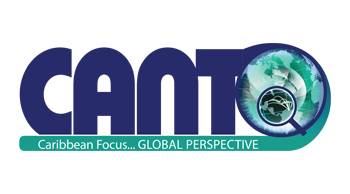
 CANTO
CANTO CANTO is a non-profit association made up of operators, organizations, companies and individuals in the ICT (telecommunications) sector.
The Association has a Caribbean focus as it relates to ICT issues for the region with a global perspective.
The policy strategy of the association is directed by a board of directors appointed by the membership. This strategy is executed by the staff of a permanent Secretariat located in Trinidad and Tobago. The association’s activities are financed through the contributions of the members as well as other revenue generating projects.
CANTO consists of a general assembly, a board of directors, and a Secretariat, headed by a Secretary General who is supported by the Secretariat Staff.
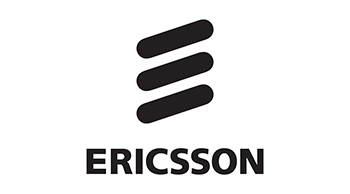
 Ericsson
Ericsson Ericsson is a world-leading provider of telecommunications equipment and related services to mobile and fixed network operators globally. Over 1,000 networks in more than 180 countries utilize our network equipment and 40 percent of all mobile calls are made through our systems. We are one of the few companies worldwide that can offer end-to-end solutions for all major mobile communication standards. Communication is changing the way we live and work. Ericsson plays a key role in this evolution, using innovation to empower people, business and society. We provide communications networks, telecom services and multimedia solutions, making it easier for people all over the globe to communicate.

 Ericsson
Ericsson GSA (the Global mobile Suppliers Association) is a not-for-profit industry organisation representing companies across the worldwide mobile ecosystem who are engaged in the supply of infrastructure, semiconductors, test equipment, devices, applications, and mobile support services.
GSA actively promote the 3GPP technology road-map – 3G; 4G; 5G – and we are a single source of information for industry reports and market intelligence. Their Members drive the GSA agenda and define the communications and development strategy for the Association.

 GSMA
GSMA The GSMA represents the interests of mobile operators worldwide, uniting nearly 800 operators with more than 250 companies in the broader mobile ecosystem, including handset and device makers, software companies, equipment providers and Internet companies, as well as organisations in adjacent industry sectors. The GSMA also produces industry-leading events such as Mobile World Congress, Mobile World Congress Shanghai and the Mobile 360 Series conferences.

 GSOA
GSOA GSOA is a non-profit organisation established with the objective of serving and promoting the common interests of satellite operators from Europe, the Middle East, Africa and the CIS. The Association today represents the interests of 21 satellite operators who deliver information communication services across the globe. Together ESOA Members provide invaluable communications services to the whole world including emergency communications, live broadcasting, maritime and aero communications, secure services for governments, 24-7 monitoring of industrial processes such as energy plants and a whole range of other communications capabilities that society has come to rely on.

 Intelsat
Intelsat Intelsat S.A. (NYSE: I) operates the world’s first Globalized Network, delivering high-quality, cost-effective video and broadband services anywhere in the world. Intelsat’s Globalized Network combines the world’s largest satellite backbone with terrestrial infrastructure, managed services and an open, interoperable architecture to enable customers to drive revenue and reach through a new generation of network services. Thousands of organizations serving billions of people worldwide rely on Intelsat to provide ubiquitous broadband connectivity, multi-format video broadcasting, secure satellite communications and seamless mobility services. The end result is an entirely new world, one that allows us to envision the impossible, connect without boundaries and transform the ways in which we live. For more information, visit www.intelsat.com.
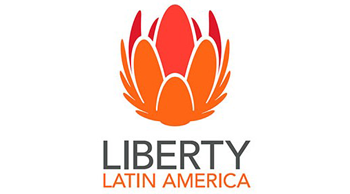

 Nokia
Nokia Nokia is a global leader in creating the technologies at the heart of our connected world. Powered by the research and innovation of Nokia Bell Labs, we serve communications service providers, governments, large enterprises and consumers, with the industry’s most complete, end-to-end portfolio of products, services and licensing.From the enabling infrastructure for 5G and the Internet of Things, to emerging applications in virtual reality and digital health, we are shaping the future of technology to transform the human experience.

 Viasat
Viasat Viasat is a global communications company that believes everyone and everything in the world can be connected. With offices in 24 countries around the world, our mission shapes how consumers, businesses, governments and militaries around the world communicate and connect. Viasat is developing the ultimate global communications network to power high-quality, reliable, secure, affordable, fast connections to positively impact people’s lives anywhere they are—on the ground, in the air or at sea, while building a sustainable future in space. On May 30, 2023, Viasat completed its acquisition of Inmarsat, combining the teams, technologies and resources of the two companies to create a new global communications partner. Learn more at www.viasat.com, the Viasat News Room or follow on Facebook, Instagram, LinkedIn, Twitter or YouTube.


 Dynamic Spectrum Alliance
Dynamic Spectrum Alliance The Dynamic Spectrum Alliance (DSA) is a global, cross-industry, not for profit organization advocating for laws, regulations, and economic best practices that will lead to more efficient utilization of spectrum and foster innovation and affordable connectivity for all.

 Echostar
Echostar EchoStar Corporation (NASDAQ: SATS) is a premier global provider of satellite communication solutions. Headquartered in Englewood, Colo., and conducting business around the globe, EchoStar is a pioneer in secure communications technologies.

 Aetha Consulting
Aetha Consulting Aetha Consulting provides strategic advice to the telecommunications industry and specialises in undertaking rigorous data-driven quantitative assessments to help businesses, regulators and policy makers make major strategic and regulatory decisions. We work with our clients to develop creative and sustainable solutions to the challenges facing them in a constantly changing environment. Aetha helps operators and regulators to analyse the opportunities and threats arising out of changes (whether real or proposed) in their radio spectrum holdings. Throughout the recent unprecedented growth of wireless services, Aetha’s staff have been at the forefront of spectrum policy. Our consultants have assisted regulators to award spectrum and develop regulatory frameworks, including supporting the European Commission to tackle issues such as spectrum trading and the digital dividend. We also support operators to understand their spectrum needs, value spectrum and bid in auctions. Each year we support around 10 bidders in spectrum auctions – a total of over 120 award processes between mid-2011 and 2023 across all regions of the world. Our technical knowledge, combined with our rigorous valuation modelling approach, ensures that our clients are comprehensively prepared for auctions.

 NERA
NERA NERA is a global firm of experts dedicated to applying economic, finance, and quantitative principles to complex business and legal challenges. For half a century, NERA’s economists have been creating strategies, studies, reports, expert testimony, and policy recommendations for government authorities and the world’s leading law firms and corporations. We bring academic rigor, objectivity, and real world industry experience to bear on issues arising from competition, regulation, public policy, strategy, finance, and litigation. NERA’s clients value our ability to apply and communicate state-of-the-art approaches clearly and convincingly, our commitment to deliver unbiased findings, and our reputation for quality and independence. Our clients rely on the integrity and skills of our unparalleled team of economists and other experts backed by the resources and reliability of one of the world’s largest economic consultancies. With its main office in New York City, NERA serves clients from more than 25 offices across North America, Europe, and Asia Pacific.